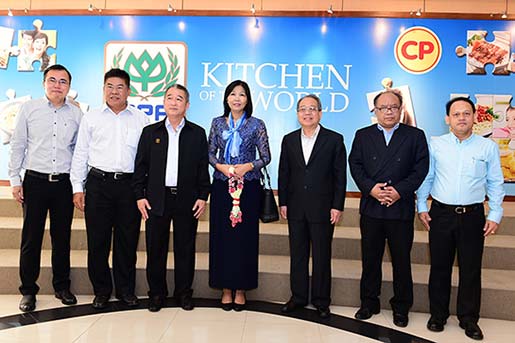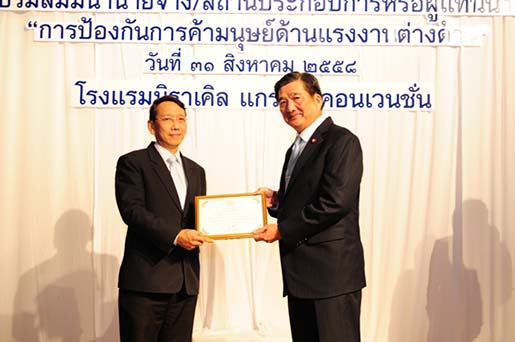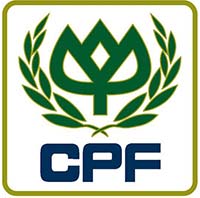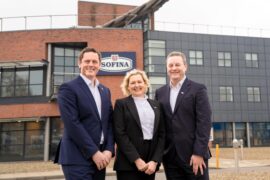Charoen Pokphand Foods Public Company Limited (CPF), Thailand’s largest producer and exporter of frozen poultry products, has underlined its commitment to legally hire migrant workers – among them more than 3,400 Cambodians employed at its chicken processing plants in Saraburi and Nakhon Ratchasima – in a fair and equal manner, according to the labor memorandum of understanding (MOU) the Thai government has signed with a number of countries.
A declaration to this effect was issued by the Bangkok-headquartered company prior to the release of a report from two Scandinavian groups advocating corporate responsibility. Finnwatch and Swedwatch claim that labor abuses ranging from illegal confiscation of personal documentation and forced labor were found at six factories that pack chicken broiler meat. CPF plants were not among them. In fact, two of its plants evaluated received mainly favorable reviews.
“Migrant workers hired by companies exporting to the EU and other markets are often exposed to repeated violations of human and labor rights by employers and subcontractors as well as corrupt officials,” the report charged. “Many of them become victims of debt bondage” due to excessive recruitment fees they were often forced to pay, it said.
CPF Respects Workers’ Rights
Suchart Sitthichai, senior vice president of CPF and manager of its Nakhon Ratchasima chicken processing facility, has pointed out that CPF is fully aware of the indispensability of migrant workers, particularly those from Cambodia and Myanmar, who help drive the Thai economy. He emphasized that in providing gainful employment for migrant workers, the company adheres to the policy of hiring on an equal, fair and non-discriminatory basis, which aligns with international standards and humanitarian principles. All exploitation forms of child labor, forced labor and human trafficking have been roundly condemned.
 H.E. Eat Sophea, (center), Cambodia’s Ambassador to Thailand, visits Charoen Pokphand Foods PCL (CPF)’s chicken processing plant in Nakhon Ratchasima.
H.E. Eat Sophea, (center), Cambodia’s Ambassador to Thailand, visits Charoen Pokphand Foods PCL (CPF)’s chicken processing plant in Nakhon Ratchasima.
At present, CPF’s chicken processing plant at Nakhon Ratchasima provides jobs for 2,300 Cambodian workers, all of whom have been directly hired by the company. This is the result of intense collaboration between Thai and Cambodian governments to select reliable licensed labor agencies in Cambodia. The selected firms are subject to verification under the standards of Thailand’s Ministry of Labor before being allowed to recruit workers for CPF.
H.E. Eat Sophea, Cambodia’s Ambassador to Thailand, recently visited CPF’s chicken processing plant at Nakhon Ratchasima, where she was informed of the company’s hiring policy for migrant workers and witnessed working conditions, in addition to welfare protection and fair and non-discriminatory treatment of the Cambodian labor force.
Suchart explained that selected Cambodian workers are fairly treated as soon as labor agencies transfer them to the firm at the Thai-Cambodian border at Klong Luek District, Sa Kaew Province, where food and vehicles are provided. CPF is responsible for all expenses relating to work permits and health check-ups based on its direct-hiring policy. Cambodian workers then attend a five-day training program before starting to work on production lines. In addition, they are provided with bus transportation and dormitories free of charge.
Cambodian employees are entitled to the same legal labor rights as Thai workers. This includes, among other things, a minimum wage of Baht 300 a day, 1.5 times normal pay as overtime compensation during normal working days, and 2 times overtime pay during holidays, as well as 30 days’ sick leave, seven days’ personal business leave, and no fewer than six days’ annual leave plus social security, plus medical allowance.
In effort overcome language barriers, CPF has set up the Thai-Cambodian Coordination Center staffed with Cambodian-speaking interpreters to communicate at the plants.
“Cambodian workers who are with us can send as much as Baht 8,000 a month back to their families, which does improve their living conditions. A lot of them come from the same village,” Suchart said.
 General Sirichai Distakul, Thai Labor Minister, presents Sumeth Vongbunyong, executive vice president of Charoen Pokphand Foods PCL (CPF), with a certificate recognizing that the company hires and treats foreign workers legally and enforces labor rights, while also helping to prevent anti-human trafficking and slave labor.
General Sirichai Distakul, Thai Labor Minister, presents Sumeth Vongbunyong, executive vice president of Charoen Pokphand Foods PCL (CPF), with a certificate recognizing that the company hires and treats foreign workers legally and enforces labor rights, while also helping to prevent anti-human trafficking and slave labor.
With its commitment to treat migrant workers on a non-discriminatory basis based on the humanitarian principles, most recently, CPF has been accredited the highest level of the Thai Labor Standard Accreditation (Thai Labor Standard 8001-2553).
“This really reflects our spirit to treat all workers under our roof with a fair, non-discriminatory standard that meets international labor practices,” Suchart said.





